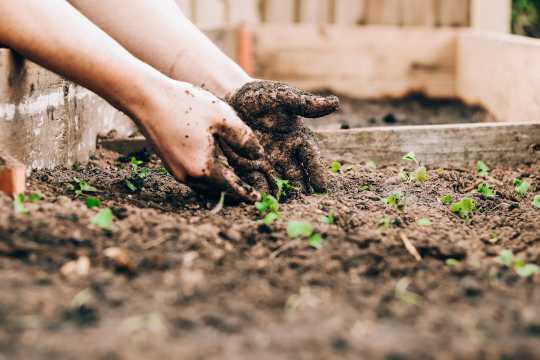Growing herbs in containers is a great way to bring fresh, flavorful ingredients to your kitchen without having to worry about a backyard garden. Whether you have a small balcony or just a sunny windowsill, container gardening can be a fun and rewarding way to grow your own herbs. However, it can be a bit tricky to get started if you’re new to gardening. Here are some tips for successfully growing herbs in containers.
1. Choose the right herbs
Not all herbs are suited for container gardening. When choosing herbs to grow in containers, it’s important to select ones that will thrive in a confined space. Some herbs that do well in containers include basil, mint, parsley, chives, thyme, and oregano. These herbs are relatively easy to grow and are well-suited for smaller spaces.
2. Use the right containers
When it comes to growing herbs in containers, size matters. Make sure to choose containers that are large enough to accommodate the root systems of your herbs. A good rule of thumb is to use a container that is at least 6 inches deep and has drainage holes at the bottom to prevent waterlogging. Additionally, consider using lightweight containers, such as plastic or fiberglass, to make it easier to move your herbs around as needed.
3. Provide adequate drainage
Proper drainage is essential for growing healthy herbs in containers. Without adequate drainage, the roots of your herbs can become waterlogged and susceptible to rot. Make sure to place a layer of small rocks or gravel at the bottom of your container before adding soil to improve drainage. Additionally, avoid overwatering your herbs by allowing the soil to dry out slightly between waterings.
4. Choose the right soil
When it comes to growing herbs in containers, the type of soil you use can make a big difference in the success of your plants. For most herbs, a well-draining potting mix is ideal. Look for a mix that contains perlite or vermiculite to improve drainage and aeration. Avoid using regular garden soil, as it can become compacted in containers and inhibit root growth.
5. Provide adequate sunlight
Most herbs require at least 6-8 hours of sunlight per day to thrive. Make sure to place your containers in a sunny spot, such as a south-facing window or a sunny balcony. If you don’t have access to enough sunlight, consider using a grow light to supplement natural light. Be sure to rotate your containers regularly to ensure that each side of your herbs gets adequate sunlight.
6. Fertilize regularly
Herbs grown in containers can quickly deplete the nutrients in their soil, so it’s important to fertilize them regularly to keep them healthy and productive. Look for a balanced, water-soluble fertilizer and apply it according to the manufacturer’s instructions. Be careful not to over-fertilize, as this can lead to nutrient burn and damage your plants. In general, it’s best to fertilize your herbs every 4-6 weeks during the growing season.
7. Prune regularly
To encourage healthy growth and prevent your herbs from becoming leggy, it’s important to prune them regularly. Pinch off the tops of your herbs to encourage bushier growth and remove any yellowing or dead leaves. Additionally, harvest your herbs frequently to keep them compact and productive. Regular pruning will help your herbs stay healthy and vibrant throughout the growing season.
8. Watch out for pests and diseases
Like any plant, herbs grown in containers are susceptible to pests and diseases. Keep an eye out for common herb pests, such as aphids, mealybugs, and spider mites, and treat them promptly with insecticidal soap or neem oil. Additionally, be on the lookout for signs of fungal diseases, such as powdery mildew or root rot, and take steps to prevent them by providing adequate air circulation and keeping your herbs dry.
In conclusion, growing herbs in containers can be a fun and rewarding experience. By following these tips, you can successfully grow your own herbs and enjoy the fresh flavors they bring to your cooking. Remember to choose the right herbs, containers, soil, and sunlight, and provide regular care in the form of watering, fertilizing, pruning, and pest control. With a little bit of effort and attention, you can create a thriving herb garden that will provide you with fresh, flavorful ingredients all season long.


